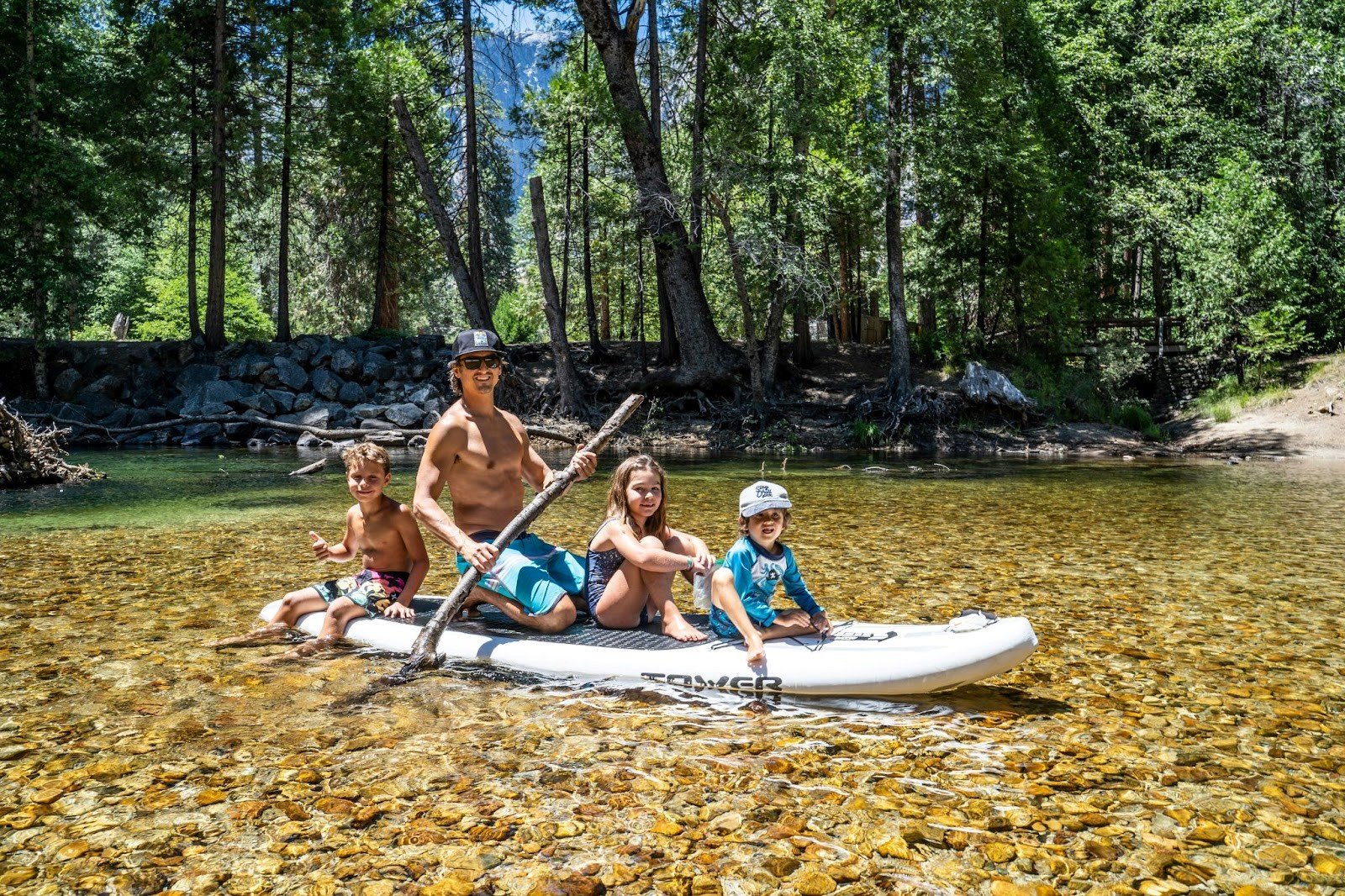Eco-Friendly Family Travel: Sustainable Practices on the Go
Photo by Jessica Rockowitz on Unsplash
As families become more environmentally conscious, sustainable travel is gaining popularity. While traveling with a family often means more considerations, it doesn’t have to mean a bigger carbon footprint. Families can enjoy their vacations by adopting eco-friendly practices to minimize their environmental impact. Here’s how you can make your family trips more sustainable.
Choose Eco-Friendly Transportation
Transportation is a significant contributor to carbon emissions, but families on holiday have several options to reduce their impact. Firstly, opt for public transportation whenever possible; trains, buses, and subways not only reduce the number of vehicles on the road, but also provide a unique way to experience local culture. Public transportation allows families to interact with locals and get a feel for the daily life of the place they are visiting. It can also be an exciting adventure for children, making the journey itself part of the vacation experience.
If public transport isn’t feasible, consider carpooling. Ridesharing services and carpooling with another family can cut down on emissions and make travel more social and fun. This method not only reduces your carbon footprint, but also allows for shared experiences and bonding time with other families.
When driving is unavoidable, maximize fuel efficiency by maintaining a steady speed, avoiding rapid acceleration and heavy braking, and keeping tires properly inflated. Regular vehicle maintenance also ensures your car runs efficiently, reducing fuel consumption; choosing a fuel-efficient vehicle or a hybrid can also reduce your carbon footprint.
Where flying is unavoidable, take non-stop flights wherever possible. Takeoffs and landings use the most fuel, making direct flights more efficient. Additionally, consider purchasing carbon offsets for your flight to support renewable energy projects.
Stay in Sustainable Accommodations
Where you stay can have a big impact on your eco-footprint. Look for accommodations with strong environmental practices. Many hotels and resorts now prioritize sustainability, offering energy-efficient lighting, water-saving fixtures, and recycling programs. Also, look for certifications such as LEED, Green Key, or EarthCheck, which indicate a commitment to environmental stewardship.
Vacation rentals, like those found on Airbnb or VRBO, often use less energy per guest than traditional hotels. Plus, having access to a kitchen allows for home-cooked meals, reducing the need for takeout and its associated waste. Of course,camping is one of the greenest accommodation options; by immersing yourself in nature and practicing the ‘Leave No Trace’ principles, you and your family can enjoy the great outdoors while minimizing environmental impact.
Pack Light and Green
Packing efficiently can save fuel and reduce waste, so travel light to reduce the load on transportation. Airlines use more fuel for heavier luggage, and carrying less makes both public transit and walking easier. Pack versatile clothing that can be worn in multiple outfits, and avoid single-use items- ideally, invest in eco-friendly travel gear. Reusable water bottles, shopping bags, and utensils cut down on single-use plastics. Look for products made from sustainable materials, such as bamboo toothbrushes and organic cotton towels.
Sustainable Dining
Food choices can greatly affect your trip’s environmental impact. Eating locally grown, seasonal foods supports local economies and reduces the carbon footprint associated with transporting food long distances. Farmers’ markets are a great way to find fresh produce and local delicacies. Try to incorporate more plant-based meals into your travel diet, as plant-based foods have a lower environmental impact compared to meat-heavy diets. Seek out vegetarian and vegan restaurants, or try cooking plant-based recipes together as a family. Additionally, remember to consider your beverage choices as well as your food - sticking to sustainable water brands and eco-friendly packaging across all consumables is best.
Be aware of portion sizes to avoid food waste. If you have leftovers, many places allow you to take them to go, reducing waste and providing a convenient snack for later. Bring reusable containers for leftovers to avoid using disposable ones. Supporting restaurants that prioritize sustainability, such as those using organic and locally sourced ingredients, can further reduce your dining footprint.
Engage in Eco-Friendly Activities
Photo by Tower Paddle Boards on Unsplash
The activities you choose to engage in can also promote sustainability. Activities like hiking, biking, and kayaking are not only enjoyable, for example, but also have minimal environmental impact. They encourage an appreciation for nature and teach children the value of preserving our planet. Seek out educational experiences that focus on conservation and sustainability. Visits to national parks, wildfire reserves, and environmental centers can be both fun and informative for the whole family. Choose tours and activities run by businesses that prioritize sustainability.
Mindful Souvenirs
Souvenirs are a part of travel, but they can be chosen mindfully. Go for locally-made products rather than mass-produced items. Local crafts and artisanal goods often have a smaller carbon footprint and support the local economy. Think about gifting experiences rather than tangible items. Tickets to a local show, a cooking class, or a guided tour, for example, can provide lasting memories without the environmental impact of a physical product.
Making Conscious Choices
Sustainable family travel is about making conscious choices that benefit both the environment and local communities. By adopting eco-friendly practices, families can enjoy memorable vacations that tread lightly on the planet; from choosing greener transportation and accommodations to engaging in nature-based activities and mindful dining, every step towards sustainability makes a difference. As more families embrace these practices, we move closer to a future where travel and environmental stewardship go hand in hand.

